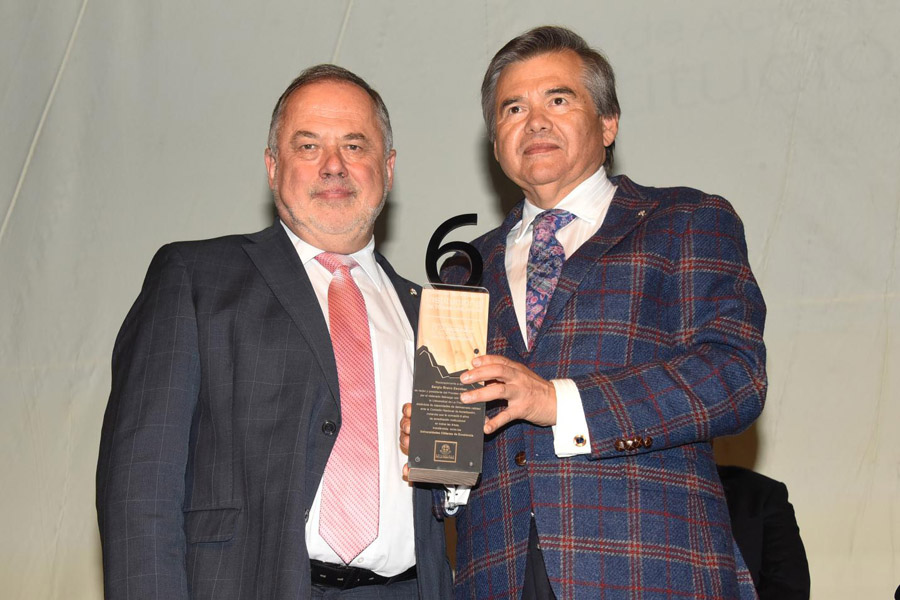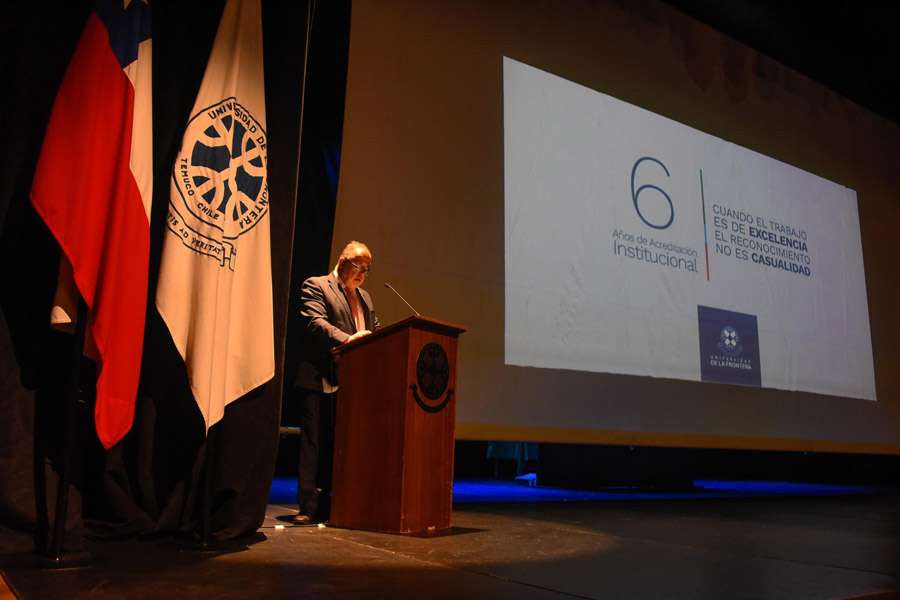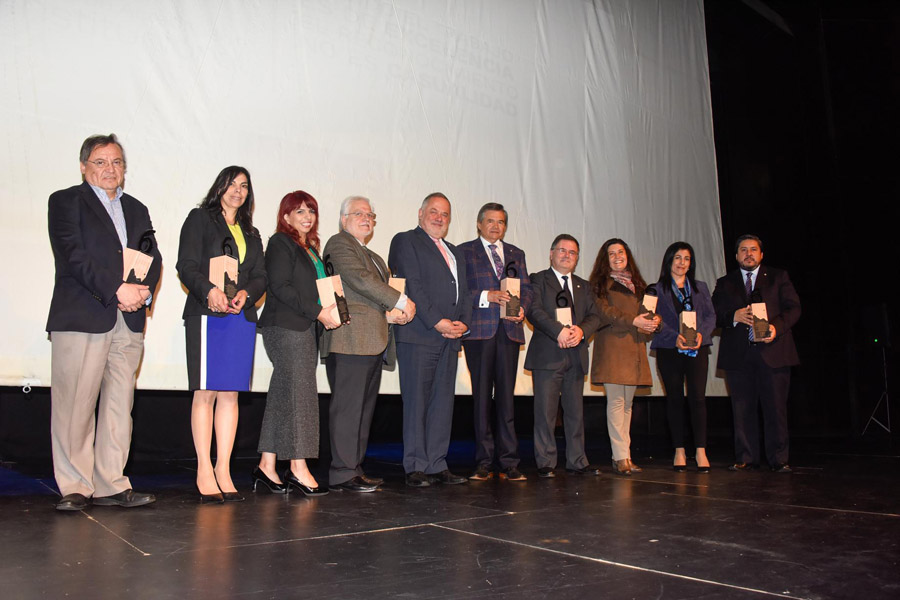|
Academics, professionals, administrative staff, students and graduates were once again part of a great achievement: today, the UFRO is the only regional state university that is accredited for 6 years in all compulsory areas – Undergraduate Teaching, Research, Postgraduate Teaching, Institutional Management and Outreach and Community Engagement.
|
“You reach your goals through efforts, and success is the sum of small efforts that have been repeated day by day. And thanks to that, to the joint work and the efforts from all of you, today, the Universidad de La Frontera is the first regional state university in Chile that achieved to be accredited for 6 years according to the National Accreditation Commission (CNA),” the rector, Dr. Eduardo Hebel, said at the ceremony for celebration of this institutional accreditation at the Aula Magna.
The university authority also emphasized the participation and commitment of the university community during this enduring process: “When a community works with a common goal, the results are remarkable. All of you were and are part of this well-deserved success. This is why we want and need to keep counting on your talents, dedication, good faith and commitment; attributes with which we will be capable of facing the challenges to come.”
The objective of the ceremony for celebration of the institutional accreditation was to cherish the efforts, work and perseverance of a huge number of people, academics, professionals, administrative staff, students and graduates by acknowledging the ones who led the different committees and were able to address the strengths and weaknesses of this institution with a collaborative and rigorous spirit, and the capability of listening.
This institutional acknowledgement was given to Hernán Fuentes, coordinator of the subcommittee for Institutional Management; Ana Moraga of the subcommittee for Undergraduate Teaching; Dr. Paula Cartes of the subcommittee for Research; Dr. Juan Carlos Parra of the subcommittee for Postgraduate Teaching and Dr. Rubén Leal of the subcommittee for Outreach and Community Engagement.
Another acknowledgement went to the ones who also played a key role in this process by carrying out the Self-Assessment Report, as well as the process of socialization with the university community: Dr. Ricardo Herrera, director of the Institutional Analysis and Development Office; Carola Espinoza, director of the Communications Office and Dr. Martha Ramírez, coordinator of the Institutional Accreditation Process.
Also Sergio Bravo, the former rector of the Universidad de La Frontera, was acknowledged for his leadership in this process.
“This is an achievement of the whole university community. It is the dream of a university that wants academic success and therefore, we are very proud and thankful for the work that has been done, especially during 2017 and 2018. This is the result of responsible work carried out by a solid academic body that has taken the university beyond our national borders. We do have good international relations and that guarantees that the students who come to our establishment will get a training of excellence,” the former rector said.
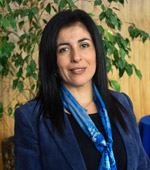 |
Ana Moraga, subcommittee for Undergraduate Teaching
“We have been working in order to systemize the great effort, the initiatives and the advances in undergraduate education during these past few years. The participants in this subcommittee were deans, professionals in this field, students, teachers and directors, in order to present our undergraduate education that wants to improve the learning experience for our students and that flourishes under the in-class learning and the systematic improvements the institution has made.”
|
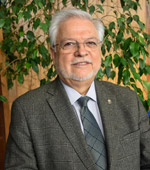 |
Dr. Rubén Leal, subcommittee for Outreach and Community Engagement
“The slogan “tradition and change” has been accomplished and everyone participated in this process – a long, complex and exhausting process. It has been a beautiful phase. The memories and relations that have been established, the basis of an institution: the human factor. Now, we are going to start the second phase, the process of responsibilities that an institution – with six years of accreditation – has to take, and it will be the new generations that are going to assume this responsibility.”
|
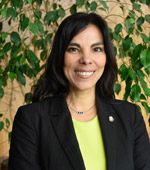 |
Dr. Martha Ramírez, director of the Quality Division and coordinator of the Institutional Accreditation Process
“This news is a dream coming true. The fact to know that we do not have to appeal anymore and that the decision was unanimous means that everybody saw what we saw regarding the improvements of our university and that the work of our former rector, Sergio Bravo, paid off and that his vision and ideas were correct. That made a huge difference, apart from the great participation of the whole university community.”
|
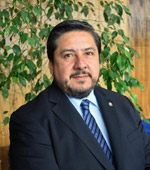 |
Hernán Fuentes, subcommittee for Institutional Management
“It has been a large period of work, dedicated to everything that has to do with doing a good diagnosis in order to obtain good conclusions, a good abstract and a good story about who we are as a university, regarding our governance, as well as what we provide within our university mission and vision. We were a great team, very united and hard-working, and getting together to advance became a habit that, at the end of the day, always ended with results.”
|
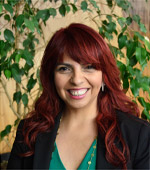 |
Carola Espinoza, director of the Communications Office
“The main lesson we learned during this process is that communication changes organizations. On the one hand, it permitted to create a work environment and atmosphere that motivated more than five thousand people to share their opinions on our strengths and weaknesses; and on the other hand, it showed the community – months before the peer-reviewers’ visit – who we are and how we handle this accreditation and, this way, we gained the respect of the peer-reviewers and achieved to bring down the myth that it is not possible to get quality education in the regions.”
|
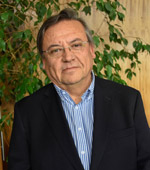 |
Dr. Ricardo Herrera, director of the Institutional Analysis and Development Office
“An accreditation is like the photo at the end of a race, and this has been a long race for the university, with a management oriented towards complexity. We have shown what we are able to do and very well; but now, assuming the meaning of these six years of accreditation, and after the celebrations, there are challenges to come, not only by maintaining our level of excellence, but also by meeting the requirements that come with it. It is the start of a challenging and new phase.”
|
 Written by: Pamela Carrasco Communications Office
|
 Written by: Pamela Carrasco
Written by: Pamela Carrasco




